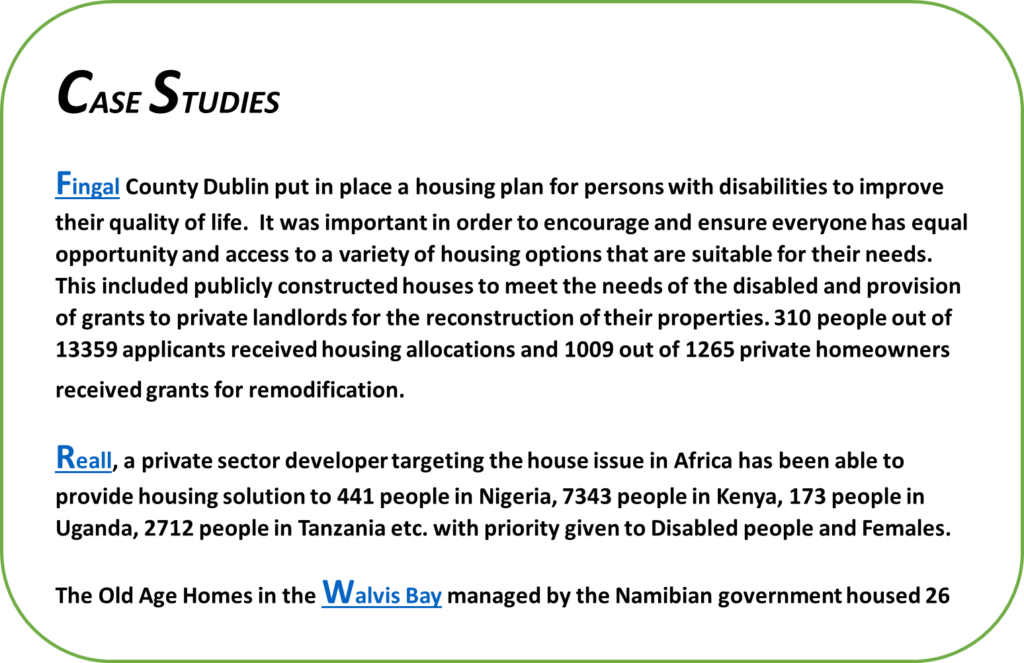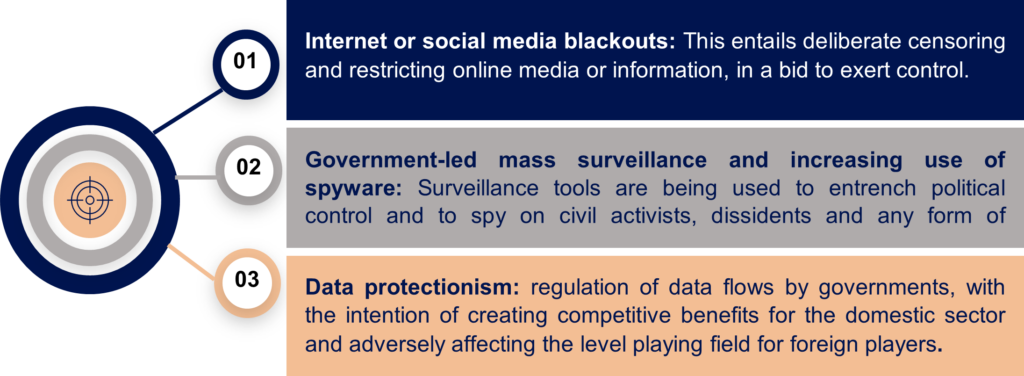

For several decades, Nigeria, Africa’s economic giant, has struggled with corruption, especially in relation to public procurement at the federal, state, and municipal/local levels of government. In 2022, Nigeria obtained 24 out of a possible 100 points in Transparency International’s Corruption Perceptions Index (CPI). This is the same score as the Central African Republic, Guatemala, and Tajikistan and well below the global average of 43 out of 100. Corruption impedes the functioning of the public sector and the economy with a debilitating effect on quality of public service delivery. Corruption can also breed political instability and social unrest, which serves extremists and can lead to long-term insecurity.
This article was first published by here by The Brookings Institution
Authors: Sope Williams, Adedeji Adeniran, Aloysius Uche Ordu
Nigeria, a country with a population above 200 million, has more than 25 million people with at least a form of disability; more than 9 million are above 60 years and about 28 million are homeless. These demographics highlight the urgent need to focus on housing as a priority. It is estimated that there are 28 million people currently without adequate housing, thus, the chances of disabled and aged citizens having access to the average housing facilities, become slimmer.
Despite the legal provision of Inclusive housing in the Nigerian Constitution, this vulnerable group are rarely considered in government housing programs. For example, 77.59% of Enugu State’s already-built public buildings were not designed with special consideration to the disabled and aged.
LEGAL BASIS FOR INCLUSIVE HOUSING
According to the Nigerian Constitution of 1999, government must focus its policies on ensuring that all citizens have access to adequate housing, food, elderly care, pensions, unemployment insurance, medical benefits, and assistance for the disabled. Also, the Discrimination against Persons with Disabilities (Prohibition) Act 2019 mandates that all buildings and their environments be made accessible for persons with disabilities. In order to achieve SDG 11, building accessible houses is a way of assisting “aging in place” while offering people with disabilities more autonomy. Houses that are warm and inclusive by providing barrier-free entryways, assuring wheelchair-friendly layouts, and putting accessible amenities in bathrooms and kitchens should be designed and constructed. By recognizing housing as a fundamental human right and adopting targeted measures, Nigeria may encourage inclusive and long-lasting housing solutions for its population. A future investment that promotes independence and enhances the standard of life for people of all abilities involves preparing for inclusivity in house designs.
WHAT INCLUSIVE HOUSING DESIGN MEANS?
As a development and welfare priority, it is essential to ensure the accessibility of appropriate housing to those living with disabilities—as well as the aged —in order to promote inclusiveness in our society. A step in the right direction would be the establishment of sections or a network of government-enabled communities that bridge the housing gap for this vulnerable demographic. These houses should be able to help unburden their lives with amenities such as wide, stair-free entranceways, lever door handles, large and close parking lots, spacious elevators in high-rises, pull-out shelves and cabinets, etc.
For equality considerations, people with disabilities should be able to choose their place of residence as well as its location and who they live with. A secure environment, proximity to basic services like food and drug stores, and adequate support systems such as caregivers, medical and physical rehabilitation centers and social centers should all be included. The relevant housing and welfare authorities should partner with medical practitioners and Non- Governmental Organizations (NGOs) to ensure the smooth implementation of this initiative and maintain its quality.
Another necessary step to consider is the affordability of these houses that will cater for people in these vulnerable groups across all income brackets. There is a great need for awareness programs to educate the society on the importance of these inclusive establishments. This would aid in reducing discrimination against the aged and disabled people and will encourage more people to help sustain this implementation.

HOW TO MAKE INCLUSIVE HOUSING A REALITY
The availability of financing capital remains a limiting factor in the establishment of such socially focused ventures. In addition, as with anything that lacks governmental supervision, some of the few existing facilities are in deplorable states. There is a need for long-term intervention, not only in terms of housing, but also for the provision of care as needs grow and become more complex over time.
To address the housing needs for the elderly and disabled citizens across the nation, adequate or partial funding should be made available to private organizations and individual homeowners who want to construct inclusive homes or alter readily available ones to meet these housing requirements. Therefore, a Public Private Partnership is needed to drive this initiative. The government will serve as financiers, and regulators while the private bodies serve as implementers, to ensure that the initiative has a huge impact and that the vulnerable groups have access to these housing facilities without any nepotism.
Nigeria, often referred to as “Africa’s giant”, has experienced a complex trajectory of development and poverty reduction which presents a paradoxical scenario (World Bank, 2022). Despite being the continent’s largest economy, Nigeria’s annual growth rate has been declining since the early 2000s while poverty remains a pervasive challenge (World Bank, 2022). Evaluating the progress made in reducing poverty and promoting development, and analysing the reasons behind any setbacks, is key to gaining some insights into the country’s prospects, and helps provide valuable lessons to be learned from Nigeria’s case study.
This commentary was first published by the Italian Institute for International Political Studies
The pandemic undermined the progress towards the Sustainable Development Goals. The prosperity of the Global South, including Nigeria, depends on universal quality education at the foundation level. This article highlights how the pandemic reversed the gains realised since 2015. It describes how technology and partnership could help build back the educational sector to achieve inclusive quality learning.
Educational inequality describes the disparity in education opportunities among socio-economic, regional, and cultural groups. In Nigeria, for example, the school completion rate among children from wealthy households and the southern region is 63% and 34% higher than those from low-income families and the northern part. Such educational inequalities contribute to widening disparity in opportunities. People with low or little education are more likely to work in the informal sector and low-wage employment.
This Blog was first published here by the Southern Voice.
I recently had the privilege of sharing my experiences on advancing data justice in African states, during an expert workshop organised by the Collaboration on International ICT Policy for East and Southern Africa (CIPESA) where I represented the Centre for the Study of the Economies of Africa. The workshop’s theme centred on 6 pillars to guide the conversation around data justice: power, participation, equity, access, knowledge and identity.
At CSEA, we commenced a research and advocacy project back in 2020 to advocate for a stronger data governance landscape in the region, as a means of putting in place necessary frameworks that can build trust in the digital and data economy, particularly in the context of regional trade, to ensure inclusive growth. Consequently, when we think about data justice, it is usually in terms of social justice, such that no one is exploited but rather everyone, not just a few, can benefit equitably from the opportunities that the data economy offers.
For this reason, CSEA has been clamouring for effective data regulation. However, we have observed some emerging trends that could pose a risk to encouraging data justice under two of the guiding pillars – power and participation.
Risk of power imbalance
For effective data governance, there needs to be a balance of power between the different players in the ecosystem, including the data subjects. However, there is a real challenge of effectively balancing data regulatory approach(es) in a manner that does not result in over-regulation of data or state abuse of regulatory powers. The figure below highlights some of these trends observed across the region:

Source: CSEA (2022) - Curtailing State Extremism In Data Governance
The above can have counter-productive implications including; human rights violation on freedom of speech and association, heightened distrust, deprivation as a result of loss of livelihoods, a potential barrier to market entry for small firms, and increased uncertainty and costs for foreign investors making it unattractive to do business in such markets. Some countries have data localisation provisions that restrict data transfers beyond their borders. This can impair regional trade integration and the development of appropriate artificial intelligence systems which require vast amounts of data.
There is also a risk of power imbalance between African nations as it relates to data. CSEA’s Digital Preparedness Index shows that African countries are at varied stages of implementing data governance laws and frameworks. Only a few countries in the region are currently able to benefit from the rapid development of the data economy. Less digitally mature countries in the region are at risk of being left behind, due to the huge investments and resources needed to support an effective data regulatory mechanism. Inequality in human resource capacity affects countries’ ability to establish good data governance rules. Policymakers oftentimes, do not fully understand technological development to be able to adopt rules that steer rather than prevent innovation.
Inadequate public participation in data governance
Public participation in data governance is key to re-balancing power structures. For policymakers to effectively protect citizens’ data rights, extensive collaboration with, and input from the persons being protected is required. This goes beyond simple consultations on draft data policies or legislation. It entails the active involvement of the public in the policy vision, development and implementation of data governance frameworks. In reality, how can the public take an active role in data policy processes and decision-making when they are not fully aware of their rights and responsibilities and lack adequate knowledge on issues related to data governance? There is definitely scope for countries to commit to empowering citizens to engage in deciding how their data is governed.
As organisations like CIPESA and CSEA continue to advocate for increased data justice, some practical issues to ponder on and work towards finding solutions are:
